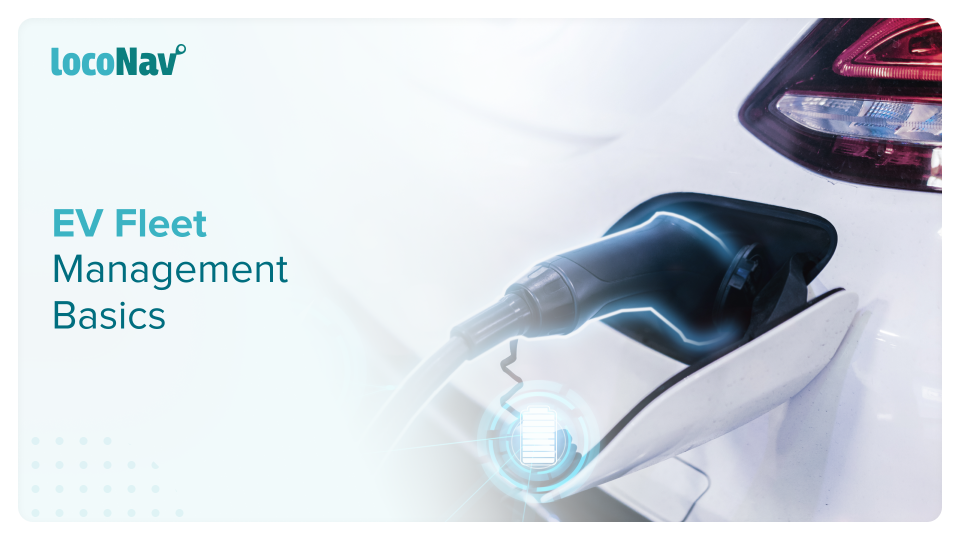

Almost every business needs some form of transportation. Their purpose is to control their fleet in order to maximize vehicle investment while also improving fleet efficiency and productivity. EV fleet management minimizes the company‘s logistic, operational, maintenance, and personnel expenditures.
Electric vehicles are already being deployed into fleets rapidly in both passenger and small commercial vehicle segments. It’s a reasonable solution for enterprises that carry passengers and small cargo in cities. The overall distances are short and maybe completed without or with little recharging.
As more businesses substitute their existing fleets with electric vehicles, a new phrase has evolved, an EV fleet management system. EV fleet management combines standard fleet management with EV charging software to address vehicle electrification issues. Conventional fleet management has been around for a lot longer and has been included in many businesses’ business models. The efficiency it brings is very well known.
Manage your fleet efficiently with LocoNav’s Fleet Management Solutions!
How does the EV fleet management system work?
With fuel stations being abundantly available, fleet management of a traditional fleet is not focused on refueling. This, however, is the opposite of EV fleet management. Recharging is crucial for task scheduling and routing in an EV fleet, so for a fleet to function effectively, EV fleet management is focused on constantly collecting and evaluating battery info, charge condition, and charging options of all EVs in the fleet.
As a result, EV fleet management solutions do everything that traditional fleet management software does and is based on available charging infrastructure. It remotely tracks the condition of critical vehicle characteristics and presents them to the web platform in real-time to identify the nearest charging station.
Why is EV fleet management gaining popularity in the transportation & logistics industry?
The EV’s growing popularity is evident. So, what is propelling this expansion? The advantages of driving electric vehicles are in front and center. Moreover, government strategy is another significant motivator.
Range anxiety—the number one reason prospective buyers have long stated for not purchasing an EV—becomes less of danger as more charging points are built. New buyers are also paying close attention to stories of servicing cars that are eventually far less expensive than their gas-powered competitors.
A new motive for purchasing EV fleets is emerging—the fleet manager who desires the most cutting-edge technologies available. Taillights, headlights, wire-free charging, sodium-ion batteries, turbo-charged EV engines, windows, and 360° visibility are all prominent features of EV fleets.
Core advantages of electric vehicle fleet management Solutions
As electric vehicles gain popularity, more businesses notice their numerous benefits for transit and parcel delivery. This is why you should consider adopting an all-EV fleet:
- Power and Cost Efficient:
Electric vehicles have much lower gasoline expenses. EVs are significantly more cost-effective than typical petrol or diesel-powered vehicles due to lower per-mile energy consumption. EVs also have significantly reduced maintenance and operational expenses due to their far more basic mechanical systems, which demand little regular maintenance, such as not necessitating costly oil changes.
- Earth-Friendly:
EVs also have benefits for the environment due to their use of renewable energy. EVs emit no tailpipe emissions, reduce carbon dioxide levels in the atmosphere, and reduce reliance on fossil fuel energy. Annually, the carbon footprint of EV production shrinks as manufacturers prioritize electricity from renewable sources.
- PR:
Consumers and business consumers are increasingly looking for brands with strong green credentials, particularly millennials and Generation Z. This is also true for attracting and retaining personnel, who will expect this level of devotion from their firm.
FAQ
What is an EV routing system?
EV Routing is a routing API capability found in Advanced Driver Assistance Systems (ADAS) devices. It also makes use of charging infrastructure apps, which are essentially databases that incorporate car brands, real-time charging station availability, membership, and pricing information.
What are the things EV fleet operators should be aware of?
- Upgrading to EV vehicles can be an expensive investment, therefore it’s critical to ensure your company will receive the benefits that make the investment worthwhile.
- When transitioning to an electric vehicle fleet, managers must analyze the average and total driving lengths a fleet vehicle travels on a daily, monthly, or annual basis.
- To discover how much mileage you may expect from your new EVs, you must first estimate your fleet’s maximum drive distance.
- Fleet managers must have a thorough understanding of driving behavior, which affects EVs more than standard vehicles.
- To guarantee that your EVs are always recharged when you need them, you must understand common idle tendencies that occur throughout a regular trip.
How useful is EV data in fleet operations?
EV data leads to greater operational efficiency and productivity. Fuel trackers, driver monitoring, and live location are all data points provided by EV fleet management software. This enables fleet management organizations to track engine idle time, leading to more efficient driving. Furthermore, it has a significant impact on the bottom line.